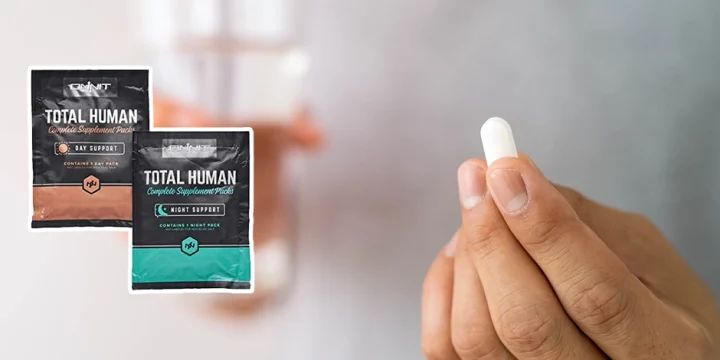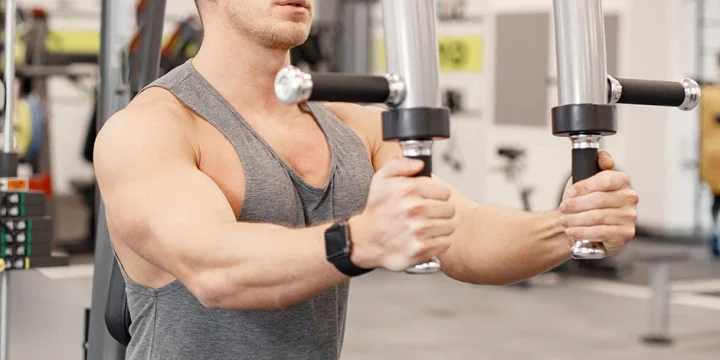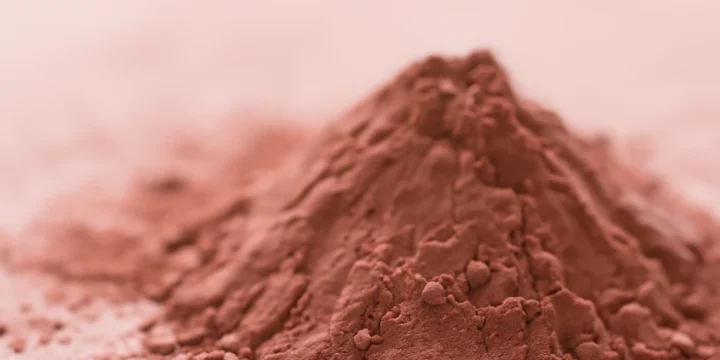One of the most common questions I get as a personal fitness coach is about dietary macros and how many carbs people should eat to lose weight.
Everyone’s metabolism is different, and age, gender, and activity levels all have an influence on weight loss. But carb intake seems to be one area where most people can make a big difference.
So, to find out whether there’s a good guideline on crabs, I got together with my dietitian and a nutritionist to research literature on low-carb diet plans for weight loss.
Here’s what I found.
Quick Summary
- To effectively lose weight, it's crucial to limit carbohydrate consumption, focusing on the balance between simple and complex carbohydrates.
- You should consume less than 150 grams of carbs per day based on an average intake of about 2,000 calories for consistent weight loss.
- According to Mayo Clinic, a low-carb intake is considered under 200 grams daily, which is less than the average consumption; the ketogenic diet goes further, limiting carbs to under 50 grams.
- In my view, incorporating a balanced approach to carb intake, emphasizing complex carbs over simple ones, can lead to more sustainable and healthy weight loss.
How Many Carbs Should You Eat To Lose Weight?
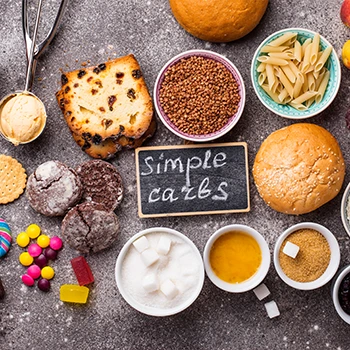
You should eat less than 150 grams of carbs to lose weight on a consistent basis. This is based on an average calorie intake of about 2,000 calories.
Typically, a low carb intake is under 200 grams daily, less than what most folks eat. The ketogenic diet, a stricter form, limits carbs to under 50 grams to induce ketosis.
Low carb diets, popular for weight loss, cut down on high-carb foods like grains, sugar, and starchy veggies.
Despite varying carb limits, both ketogenic and other low carb diets focus on reducing carbs to hit weight loss targets. More on this shortly.
“If you eat somewhere between 100-150 grams of carbs, you’re way lower than average, and your body is quickly burning through its liver carb stores. If you eat extra protein, that can provide a buffer to replenish these stores.”
- Kamal Patel, Co-founder & Editor at Examine.com

Why Is Eating Fewer Carbs Important?
Eating fewer carbs is important for weight loss because a lot of carbs are easily digested and broken down into sugar. According to Harvard School of Public Health (HSPH), that sugar then enters the bloodstream quickly and can lead to sudden blood sugar spikes [1].
What happens next is that a lot of damage is done to weight management.
As your glucose levels spike, your pancreas releases insulin in order to deal with the excess amounts. And most excess energy gets stored in the form of fat.
Eating more carbs can lead to blood sugar spikes and, without enough physical activity, to weight gain. A low-carb diet swaps carbs for healthy fats and protein, slowing digestion and stabilizing blood sugar levels.
For optimal weight loss, monitor your carb intake. Both low carb and low fat diets are popular for weight loss. However, a low carb diet focuses on cutting carbs to boost fat burning and weight loss.
Replacing carbs with fats and protein keeps blood sugar levels steady, aiding in effective weight management.
Types Of Carbohydrates

Just reducing your total daily carb intake to lose weight could still be an issue because not all carbs are created equally.
Complex Carbs
Complex carbs are made up of long sugar molecules that form complex chains. And, according to the National Institute of Health (NIH), these chains take a while for your stomach and metabolism to break down [2].
You’ll typically find these complex carbs in starchy vegetables and whole grains that haven't been processed. Think of vegetables like yams or squash, and these good carbs do have a place in a healthy weight loss.
I’ll get to some low-carb diet examples shortly, but you should try to limit your carbohydrate intake to these complex types.
Simple Carbs
Simple carbohydrates occur naturally in some types of food, but you’ll mostly find them as refined carbs in processed food. Think of things like fruit and dairy products as natural sources of simple carbs.
While anything with added sugar, like sodas and candy bars, would be a source of refined carbohydrates. And these are the ones you should absolutely avoid on a low-carb diet.
I recommend limiting your calorie intake from these carb sources as much as possible for optimal health and fitness.
What Do Low-Carb Diets Look Like?

Typical low-carb diets essentially involve low-carb eating with an increase in fat and protein consumption. It all comes down to how many grams of protein you consume.
Less Than 200 Grams Of Carbohydrates
According to Mayo Clinic, two hundred grams per day would be lower than general dietary guidelines [3]. And if you get less than 20 grams from complex carbs, then this should translate into a good impact on body fat.
I find this is a good starting point for people, and it won’t be overly challenging to adjust your healthy diet.
100 To 150 Grams Of Carbohydrates
This is where I feel you start making a more targeted effort of a low-carbohydrate diet, and it’s about half the daily dietary guidelines mentioned above.
I would also suggest that you get less than 10 grams per day from simple and refined carbohydrates. You’ll need to replace all your pasta, white rice, and typical breakfast cereals with whole grains and raw vegetables.
Less Than 50 Grams Of Carbohydrates
This is where you’re getting into the range for the keto diet with less than 50 grams of carbs per day. This is where your metabolism switches from creating blood glucose to ketones by processing dietary and body fat.
It’s possible to achieve rapid weight loss with low carb consumption, but it can be quite a struggle to maintain such a diet.
3 Tips For Cutting Back

Here are three tips for trying to lose weight with low carbohydrate diets and incorporating aspects of a low-fat diet.
1. Set An Achievable Goal
If you’re new to low-carb diets and you’re currently still eating a large volume of carbs, then don’t jump straight into keto.
Taking such drastic actions can increase your chances of failure because the transition is so significant. Instead, start to cut carbs gradually and focus on eliminating the refined type of carbs.
2. Remove All Processed Foods

You’ll be surprised how easily you can eliminate a lot of carbs by removing processed foods and sugary treats.
Getting to 150 grams of carbs a day to lose weight is so much easier when you stop eating that candy bar that contains 40 grams of sugar.
And if you tend to eat carbs as snacks, then switch to nuts and seeds to help you feel full and avoid hunger cravings.
3. Track Your Intake
And finally, don’t guess how many carbs you’re eating. You have to keep track of all your macronutrient intake, and the easiest way to do that is the Noom application. It will allow you to enter your daily meals and will then calculate macros and calories.
At the end of each day, you’ll see exactly how many calories came from what sources. With that information, you can then make some adjustments.
Get Your Macros And Supplements Aligned
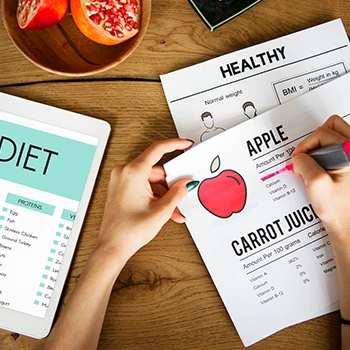
Comparison with Other Diet Approaches
Each diet's effectiveness varies based on individual health goals, dietary preferences, and lifestyle.
- Low-carb diets, like the ketogenic diet, focus on reducing carbohydrate intake, often for weight loss or blood sugar control. They can be effective for rapid weight loss and may improve markers of metabolic syndrome. However, they can be restrictive and challenging to maintain long-term.
- Mediterranean diets, rich in fruits, vegetables, whole grains, and healthy fats, are praised for heart health and longevity. They're easier to adhere to due to their variety and are less restrictive.
- Plant-based diets, emphasizing fruits, vegetables, and grains, are linked to lower risks of chronic diseases and are environmentally sustainable. They require careful planning to ensure adequate nutrient intake but are generally considered beneficial for long-term health.
FAQs
Do All Carbs Make You Gain Weight?
No, not all carbs make you gain weight. It’s mainly due to simple sugars and carbs and an excessive calorie intake that can lead to belly fat and ultimately obesity.
Can You Eat Too Few Carbs?
Yes, you can eat too few carbs. Even on extreme restriction diets like keto, you should still eat some carbs each day to maintain healthy glucose levels.
Can Fat Bombs Help You Lose Weight?
Yes, fat bombs can help you lose weight by making you feel more energized, keeping you full longer, helping increase your metabolism, and promoting ketosis.
References:
- https://www.hsph.harvard.edu/nutritionsource/carbohydrates/carbohydrates-and-blood-sugar/
- https://www.ncbi.nlm.nih.gov/books/NBK459280/
- https://www.mayoclinic.org/healthy-lifestyle/nutrition-and-healthy-eating/in-depth/carbohydrates/art-20045705
- https://www.ncbi.nlm.nih.gov/pmc/articles/PMC7539343/
- https://www.sciencedirect.com/topics/agricultural-and-biological-sciences/thermogenesis
About The Author
You May Also Like


